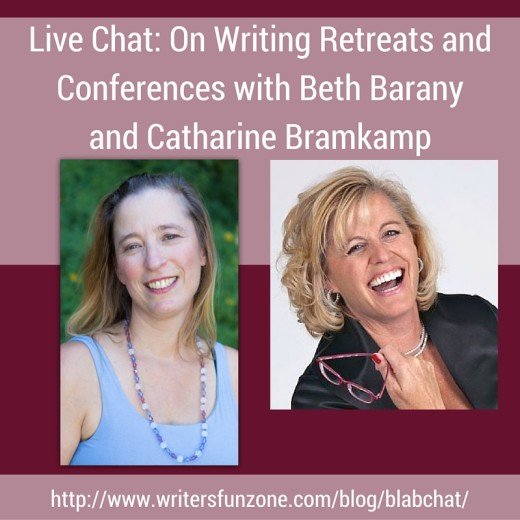Writing Resistance: We Can Overcome! By Catharine Bramkamp
 “Let’s welcome back monthly columnist Catharine Bramkamp as she shares with us about “Writing Resistance: We Can Overcome! ”
“Let’s welcome back monthly columnist Catharine Bramkamp as she shares with us about “Writing Resistance: We Can Overcome! ”
***
A student was finding it difficult to journal. She didn’t have the time.
There is a great deal behind the simple phrase, I don’t have time.
We say this in answer to many projects that ironically, we desperately want to do: our journals, our books, our art, our education.
You can find time, you can protect time, you can use time wisely or waste it.
Time is often the scapegoat for our resistance to change and growth.
When we don’t have time, we often are afraid of the new, the scary or of the work itself.
In this case, not having time translates into: It’s difficult to start something new.
When you are beginning a project, a book, an article or even a journal, the project can be overwhelming and fear-filled.
What will come out of our subconscious? What will we say? Is there something hidden in our history that may escape?
No time = abundance of resistance.
The solution is to tackle the scary project one minute at a time. Literally.
Here is my own experience.
I have a client who wants to start a podcast. Great! I co-produced a weekly podcast for five years. For Newbie Writers Podcast, my partner, Damien recorded, edited and posted the podcast. I booked guests, wrote the scripts, and interviewed the guests. In the spring and fall I also did a lot of math because Australia moves in and out of day light savings time at a different rate than the US.
I totally can organize a podcast. But for this project, I also needed to run the sound boards.
Which means learn Audacity and learn how to record and edit and post the final product. And figuring it out now.
With zero experience.
As a result, I experienced enormous resistance. And by that sanitized word I mean, terror of failing, panic of the new, deep dread of tackling another new technology. Fear.
But I had to do it.
Since I occasionally listen to my own suggestions, I began with a list:
• Find the mic.
• Open Audacity program.
• Plug in the mic.
• Learn that you need to plug in the mic BEFORE opening Audacity.
• Experiment.
• Fail.
To break this down even further, I recalled the encouragement and admonishments inherent in all how-to books, transformative journaling being no exception, on how to tackle a big scary project one step at a time.
The larger the scary project, the smaller increment of time required.
For this scary project and for your scary project, start out working on the project in five minute increments. Or less.
Yes. Five minutes or less. Not five minutes and then five minutes more and while we’re here, why not half an hour? Five minutes and then quit for the day.
If you bargain with your conscious and promise to do something for five minutes, ten minutes, seven years, keep the promise.
Five minutes means five minutes.
You wouldn’t tell a child, this will only be for five minutes and then surprise her with a project that takes half an hour. She will never trust that five-minute promise again. So too with your own mind. Don’t lie. Because that mistrust hardens into writing blocks, or, kindly, resistance.
This is how I approached my podcast assignment.
Day one: Look for the mic for five minutes. I looked in the attic where the lights for video blogging are stored. (Tells you how often I video.) The mic is not there. Quit for the day.
Day two: Search for the mic in the cellar. Open a cardboard packing box marked computer. It’s there! Success! Place it on the desk. Quit for the day.
Day three: Download the Audacity program. Quit for the day.
You get the idea.
Give yourself a chance to inch closer to your fear, sneak up on it.
If you feel you are carrying so much baggage, your arms are too tired to pick up a pen, try these small steps:
• Day one: Pick up the journal. Hold it. Put it down. Quit for the day.
• Day two: Pick up the journal, open it to a new blank page. Quit for the day.
• Day three: Pick up the journal, open it to a new blank page. Pick up a pen.
• Day four: Make a squiggle on the new blank page. Now it’s an old page.
• Day five: On a new blank page, write a sentence. Something like, “I am writing in my journal.” Quit for the day. But all during the day, remember that you wrote something in your journal and allow yourself to feel pleased and accomplished. Link journaling with a feeling
of accomplishment.
The following week: Continue to write a single sentence and continue to feel pleased with your project. Don’t think, I only wrote one sentence. Think, wow, I wrote in my journal today.
Pretty soon you will feel you can do more. Do more. Always link writing in your journal with positive emotions. Rinse and repeat.
This may sound almost childish, but as I stare at my microphone thinking, knowing, that I’d rather write about my challenge than do something about it. I understand the importance of taking tiny steps for a stealthy overtake of an enormous challenge. We don’t want to attach guilt or obligation to our project. We want to attach accomplishment and joy to our project.
And no amount of graphics, language, or techniques will work if you are stuck at the part where you can’t bring yourself to pick up a pen.
When I do post the first podcast for my client, it will be accompanied by a triumphant blog post telling one and all how easy it is. But you will know the truth.
What ends up easy, often starts out as truly and terribly difficult. And the way to break through — is one itty bitty step at a time.
For a free e-book on transformative journaling, contact Catharine: cbramkamp(at)gmail.com
***
ABOUT THE AUTHOR
When she’s not pulling her mother out of traffic, Catharine coaches and teaches fiction, non-fiction, and journal writing.
 Catharine Bramkamp is a successful writing coach bringing her clients from idea to published book and beyond. She has written 17 novels and 3 books on writing. Her poetry appears in over a dozen anthologies including And The Beats Go On (she was editor as well) and the chapbook Ammonia Sunrise (Finishing Line Press). Her current book, Don’t Write Like We Talk, is based on her co-producer experience creating 200-plus episodes of the Newbie Writers Podcast. She is the Chief Storytelling Officer for technical companies because everyone has a story.
Catharine Bramkamp is a successful writing coach bringing her clients from idea to published book and beyond. She has written 17 novels and 3 books on writing. Her poetry appears in over a dozen anthologies including And The Beats Go On (she was editor as well) and the chapbook Ammonia Sunrise (Finishing Line Press). Her current book, Don’t Write Like We Talk, is based on her co-producer experience creating 200-plus episodes of the Newbie Writers Podcast. She is the Chief Storytelling Officer for technical companies because everyone has a story.






